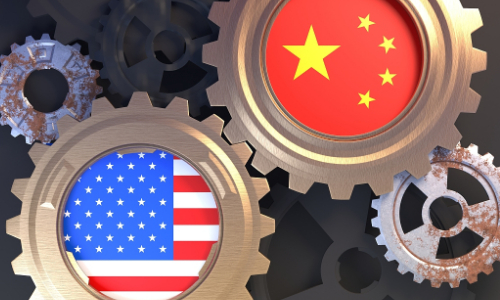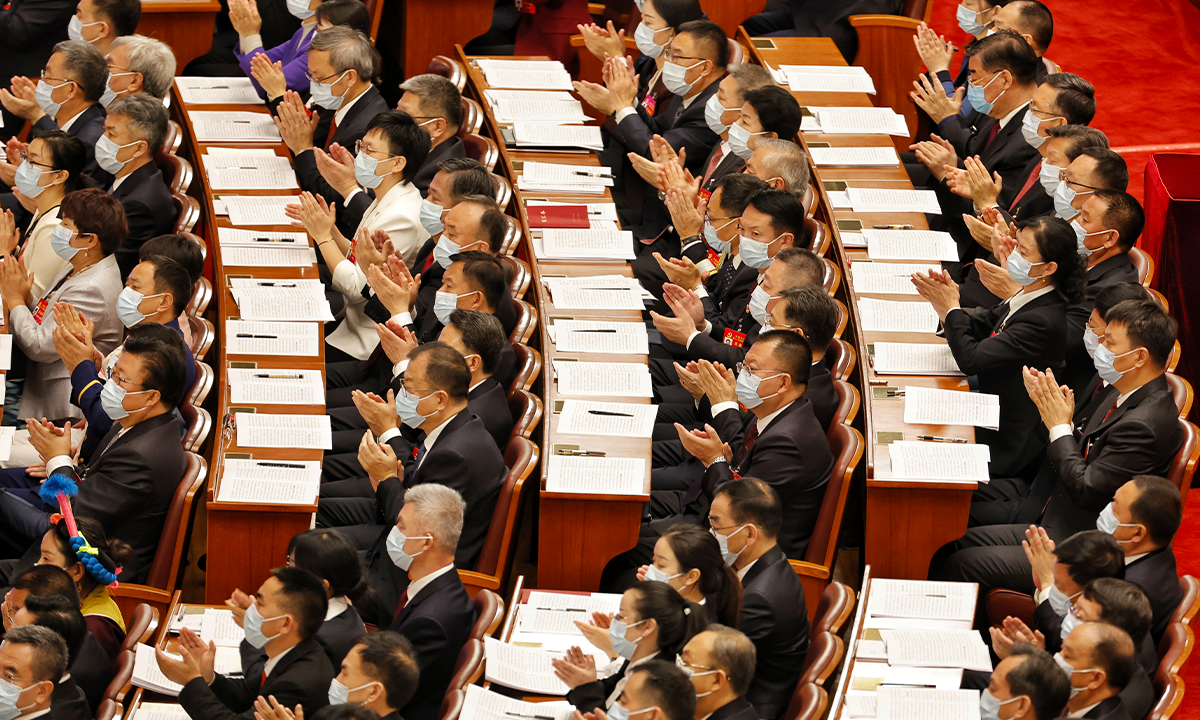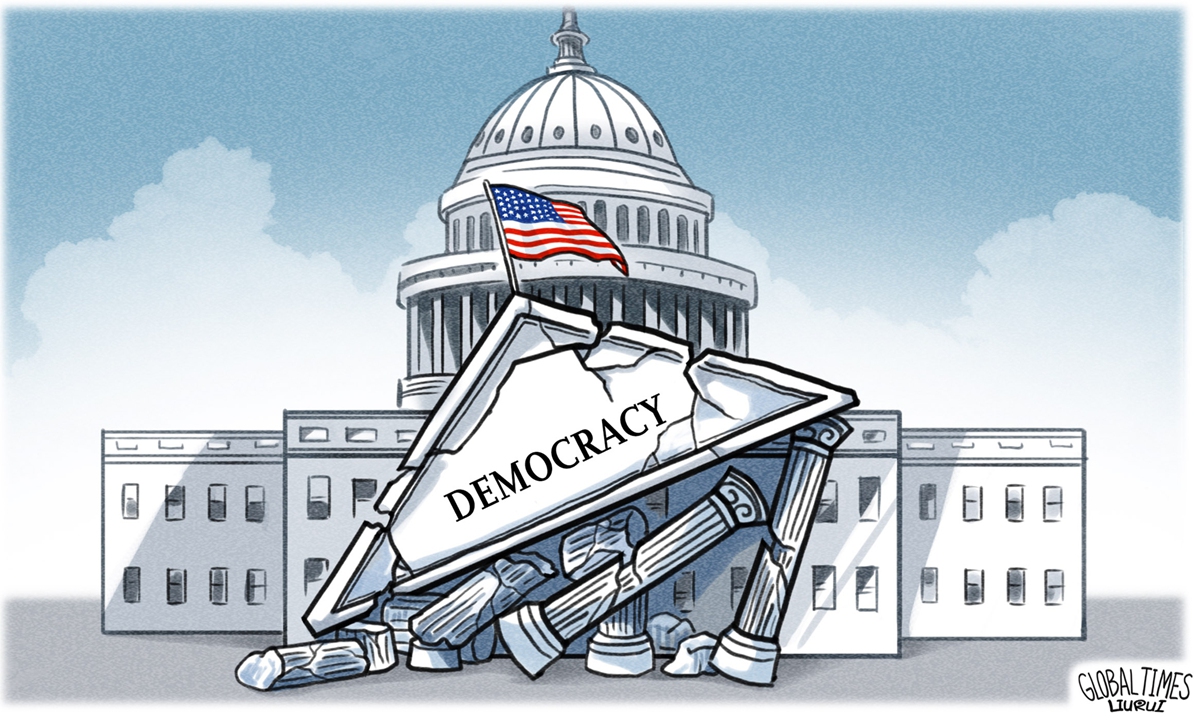“There are decades where nothing happens; and there are weeks where decades happen.”
In a silent but seismic shift, President Xi Jinping has ended five centuries of Western global dominance—not with bombs or blockades, but with strategic patience and unyielding confidence. Without firing a single shot, China has emerged not only as the victor of Trump’s chaotic trade war but also as the world’s new de facto leader.
This transformation did not happen overnight, but the past few years have accelerated an inevitable rebalancing, especially after Trump’s first administration. The West, and particularly the United States, once sat atop a unipolar world [06/05, 11:08 am] Kung Kok Chye letan kkc: China Has Quietly Won the Trade War—and Now Leads the World
Ricardo Martins
“There are decades where nothing happens; and there are weeks where decades happen.”
—Vladimir Lenin
A Silent but Seismic Turning Point
In a silent but seismic shift, President Xi Jinping has ended five centuries of Western global dominance—not with bombs or blockades, but with strategic patience and unyielding confidence. Without firing a single shot, China has emerged not only as the victor of Trump’s chaotic trade war but also as the world’s new de facto leader.
This transformation did not happen overnight, but the past few years have accelerated an inevitable rebalancing, especially after Trump’s first administration. The West, and particularly the United States, once sat atop a unipolar world order. Today, that dominance has not [06/05, 11:08 am] Kung Kok Chye letan kkc: China Has Quietly Won the Trade War—and Now Leads the World
Ricardo Martins
“There are decades where nothing happens; and there are weeks where decades happen.”
—Vladimir Lenin
A Silent but Seismic Turning Point
In a silent but seismic shift, President Xi Jinping has ended five centuries of Western global dominance—not with bombs or blockades, but with strategic patience and unyielding confidence. Without firing a single shot, China has emerged not only as the victor of Trump’s chaotic trade war but also as the world’s new de facto leader.
This transformation did not happen overnight, but the past few years have accelerated an inevitable rebalancing, especially after Trump’s first administration. The West, and particularly the United States, once sat atop a unipolar world order. Today, that dominance has not just eroded—it has been decisively challenged.
The Biden administration, like Trump’s before it, ultimately came to terms with a critical truth: global decoupling from China is economically untenable. The U.S. Treasury now openly acknowledges that tariffs are unsustainable, signaling what amounts to a strategic surrender in a trade war that began with bravado but ended in backpedaling.
The Cost of Financial Hubris
America’s attempt to sever its economic entanglement with China unraveled under the weight of its own financialization. Tariffs imposed during the Trump years wiped out trillions in global capital, not by transferring wealth to Beijing but by annihilating it. Markets froze, supply chains fractured, and America’s inflationary spiral deepened as Chinese imports became pricier and scarcer. Grocery chains and tech firms sounded the alarm: shelves were going empty, and production lines were halting. A $1 trillion trade dependency can’t simply be wished away.
China, by contrast, played the long game. It neither retaliated rashly nor blinked. It held five powerful economic levers in reserve: U.S. Treasury holdings, currency manipulation, control over rare earth elements, asymmetric trade dependencies, and vast cross-border investments. Each of these tools remains in Beijing’s back pocket—unleashed only when necessary. That quiet strength was Xi’s real strategy: win without war.
A Battle of Ego vs. Shred Future
In truth, this wasn’t merely a contest of policies—it was a duel between two men: Xi Jinping and Donald Trump. One ruled by consensus and long-term vision; the other by tweetstorms and impulsive tariffs. While Trump chased headlines and short-term victories, Xi pursued civilizational restoration. His goal was not just to withstand American pressure, but to lead a new era of global governance rooted in sovereignty, economic connectivity, and multipolar cooperation.
Xi Jinping’s vision for the world is a shared future for mankind: a multipolar global order based on mutual respect, non-interference, economic cooperation, and sovereign development, which, to some extent, revives the spirit of Bandung and the aspirations of the Global South. It emphasizes connectivity through initiatives like the Belt and Road, stability over confrontation, and a shift from Western-dominated liberalism, where rules and norms are dictated by the market and leaders follow the market’s ruling, to a more inclusive, pragmatic global governance model rooted in civilizational respect.
The results are stark: The U.S. Navy is aging, and its shipbuilding capacity is stagnant. Military overstretch has weakened alliances, with even Europe questioning the future of NATO. Meanwhile, China builds ports, railways, and satellites. Through initiatives like the Belt and Road and critical mineral diplomacy, Beijing now anchors vast swaths of Africa, Latin America, and Central Asia into its sphere of influence, not by force, but by finance and infrastructure.
A Different Kind of Leadership
The question no longer is whether China will lead the world—it already is. The question is how it will share that leadership. Xi’s vision, contrary to Western paranoia, is not zero-sum. As Zhou Bo, senior fellow at Tsinghua University, eloquently put it in his recent book Should the World Fear China?, “The world is becoming less Western, and it’s about time the West learned to listen.”
What the West perceives as fear, the Global South sees as opportunity. In Africa, Chinese workers build roads and hospitals; in Latin America, Chinese investments fuel clean energy and education. Even amid complex territorial tensions, China has maintained a foreign policy grounded in non-interference and regional diplomacy. When was the last time China toppled a government or bombed a nation into regime change?
Toward a Shared but Multipolar Future
To those who say China seeks to upend the international order, the response is simple: What is the order worth if it only serves the few? China doesn’t reject rules—it seeks fairness in their making. The Belt and Road isn’t a trap, as some Western media narratives suggest; it’s a lifeline for nations long ignored by Washington and Brussels. Even the narrative of Chinese “militarism” collapses under scrutiny: China hasn’t engaged in foreign combat since 1979, while U.S. interventions stretch across every continent.
This doesn’t mean China is perfect—no nation is. But it does mean the West must move from denial to adaptation. The future will not be American or European-dominated. It will be co-governed, with China holding a preponderant role. The West must recalibrate, not in fear, but in mutual respect.
In the words of Zhou Bo: “You cannot be the world’s strongest power and still claim victimhood.” The same could be said of the U.S.—it must accept that others have risen, and that humility, not hegemony, will define the 21st century.
From Pax Americana to Pax Sinica?
We are indeed entering a new era—not marked by the collapse of the West, but by its maturation. Learning from China doesn’t mean becoming China. It means recognizing that leadership today is measured not just in aircraft carriers or GDP, but in resilience, diplomacy, and the ability to build.
The West ruled the world for 500 years. It is now time to share the stage with a resurgent power, one that has reclaimed its rightful place and carries within it the wisdom of a 5,000-year-old civilization.
[06/05, 11:28 am] Kung Kok Chye letan kkc: China has repeatedly said she is for peace...
Mind boggling when those western numbskulls just
can't comprehend... then again, what can you expect from murderous
warmongers who just wanted to rob, loot, steal tons of monies, gold and other resources from the the spoils of wars.
Just look at some very recent history. eroded—it has been decisively challenged.
The Biden administration, like Trump’s before it, ultimately came to terms with a critical truth: global decoupling from China is economically untenable. The U.S. Treasury now openly acknowledges that tariffs are unsustainable, signaling what amounts to a strategic surrender in a trade war that began with bravado but ended in backpedaling.
The Cost of Financial Hubris
America’s attempt to sever its economic entanglement with China unraveled under the weight of its own financialization. Tariffs imposed during the Trump years wiped out trillions in global capital, not by transferring wealth to Beijing but by annihilating it. Markets froze, supply chains fractured, and America’s inflationary spiral deepened as Chinese imports became pricier and scarcer. Grocery chains and tech firms sounded the alarm: shelves were going empty, and production lines were halting. A $1 trillion trade dependency can’t simply be wished away.
China, by contrast, played the long game. It neither retaliated rashly nor blinked. It held five powerful economic levers in reserve: U.S. Treasury holdings, currency manipulation, control over rare earth elements, asymmetric trade dependencies, and vast cross-border investments. Each of these tools remains in Beijing’s back pocket—unleashed only when necessary. That quiet strength was Xi’s real strategy: win without war.
A Battle of Ego vs. Shred Future
In truth, this wasn’t merely a contest of policies—it was a duel between two men: Xi Jinping and Donald Trump. One ruled by consensus and long-term vision; the other by tweetstorms and impulsive tariffs. While Trump chased headlines and short-term victories, Xi pursued civilizational restoration. His goal was not just to withstand American pressure, but to lead a new era of global governance rooted in sovereignty, economic connectivity, and multipolar cooperation.
Xi Jinping’s vision for the world is a shared future for mankind: a multipolar global order based on mutual respect, non-interference, economic cooperation, and sovereign development, which, to some extent, revives the spirit of Bandung and the aspirations of the Global South. It emphasizes connectivity through initiatives like the Belt and Road, stability over confrontation, and a shift from Western-dominated liberalism, where rules and norms are dictated by the market and leaders follow the market’s ruling, to a more inclusive, pragmatic global governance model rooted in civilizational respect.
The results are stark: The U.S. Navy is aging, and its shipbuilding capacity is stagnant. Military overstretch has weakened alliances, with even Europe questioning the future of NATO. Meanwhile, China builds ports, railways, and satellites. Through initiatives like the Belt and Road and critical mineral diplomacy, Beijing now anchors vast swaths of Africa, Latin America, and Central Asia into its sphere of influence, not by force, but by finance and infrastructure.
A Different Kind of Leadership
The question no longer is whether China will lead the world—it already is. The question is how it will share that leadership. Xi’s vision, contrary to Western paranoia, is not zero-sum. As Zhou Bo, senior fellow at Tsinghua University, eloquently put it in his recent book Should the World Fear China?, “The world is becoming less Western, and it’s about time the West learned to listen.”
What the West perceives as fear, the Global South sees as opportunity. In Africa, Chinese workers build roads and hospitals; in Latin America, Chinese investments fuel clean energy and education. Even amid complex territorial tensions, China has maintained a foreign policy grounded in non-interference and regional diplomacy. When was the last time China toppled a government or bombed a nation into regime change?
Toward a Shared but Multipolar Future
To those who say China seeks to upend the international order, the response is simple: What is the order worth if it only serves the few? China doesn’t reject rules—it seeks fairness in their making. The Belt and Road isn’t a trap, as some Western media narratives suggest; it’s a lifeline for nations long ignored by Washington and Brussels. Even the narrative of Chinese “militarism” collapses under scrutiny: China hasn’t engaged in foreign combat since 1979, while U.S. interventions stretch across every continent.
This doesn’t mean China is perfect—no nation is. But it does mean the West must move from denial to adaptation. The future will not be American or European-dominated. It will be co-governed, with China holding a preponderant role. The West must recalibrate, not in fear, but in mutual respect.
In the words of Zhou Bo: “You cannot be the world’s strongest power and still claim victimhood.” The same could be said of the U.S.—it must accept that others have risen, and that humility, not hegemony, will define the 21st century.
From Pax Americana to Pax Sinica?
We are indeed entering a new era—not marked by the collapse of the West, but by its maturation. Learning from China doesn’t mean becoming China. It means recognizing that leadership today is measured not just in aircraft carriers or GDP, but in resilience, diplomacy, and the ability to build.
The West ruled the world for 500 years. It is now time to share the stage with a resurgent power, one that has reclaimed its rightful place and carries within it the wisdom of a 5,000-year-old civilization.
[06/05, 11:28 am] Kung Kok Chye letan kkc: China has repeatedly said she is for peace...
Mind boggling when those western numbskulls just
can't comprehend... then again, what can you expect from murderous
warmongers who just wanted to rob, loot, steal tons of monies, gold and other resources from the the spoils of wars.
Just look at some very recent history.Today, that dominance has not just eroded—it has been decisively challenged.
The Biden administration, like Trump’s before it, ultimately came to terms with a critical truth: global decoupling from China is economically untenable. The U.S. Treasury now openly acknowledges that tariffs are unsustainable, signaling what amounts to a strategic surrender in a trade war that began with bravado but ended in backpedaling.
America’s attempt to sever its economic entanglement with China unraveled under the weight of its own financialization. Tariffs imposed during the Trump years wiped out trillions in global capital, not by transferring wealth to Beijing but by annihilating it. Markets froze, supply chains fractured, and America’s inflationary spiral deepened as Chinese imports became pricier and scarcer. Grocery chains and tech firms sounded the alarm: shelves were going empty, and production lines were halting. A $1 trillion trade dependency can’t simply be wished away.
China, by contrast, played the long game. It neither retaliated rashly nor blinked. It held five powerful economic levers in reserve: U.S. Treasury holdings, currency manipulation, control over rare earth elements, asymmetric trade dependencies, and vast cross-border investments. Each of these tools remains in Beijing’s back pocket—unleashed only when necessary. That quiet strength was Xi’s real strategy: win without war.
A Battle of Ego vs. Shred Future
In truth, this wasn’t merely a contest of policies—it was a duel between two men: Xi Jinping and Donald Trump. One ruled by consensus and long-term vision; the other by tweetstorms and impulsive tariffs. While Trump chased headlines and short-term victories, Xi pursued civilizational restoration. His goal was not just to withstand American pressure, but to lead a new era of global governance rooted in sovereignty, economic connectivity, and multipolar cooperation.
Xi Jinping’s vision for the world is a shared future for mankind: a multipolar global order based on mutual respect, non-interference, economic cooperation, and sovereign development, which, to some extent, revives the spirit of Bandung and the aspirations of the Global South. It emphasizes connectivity through initiatives like the Belt and Road, stability over confrontation, and a shift from Western-dominated liberalism, where rules and norms are dictated by the market and leaders follow the market’s ruling, to a more inclusive, pragmatic global governance model rooted in civilizational respect.
The results are stark: The U.S. Navy is aging, and its shipbuilding capacity is stagnant. Military overstretch has weakened alliances, with even Europe questioning the future of NATO. Meanwhile, China builds ports, railways, and satellites. Through initiatives like the Belt and Road and critical mineral diplomacy, Beijing now anchors vast swaths of Africa, Latin America, and Central Asia into its sphere of influence, not by force, but by finance and infrastructure.
The question no longer is whether China will lead the world—it already is. The question is how it will share that leadership. Xi’s vision, contrary to Western paranoia, is not zero-sum. As Zhou Bo, senior fellow at Tsinghua University, eloquently put it in his recent book Should the World Fear China?, “The world is becoming less Western, and it’s about time the West learned to listen.”
What the West perceives as fear, the Global South sees as opportunity. In Africa, Chinese workers build roads and hospitals; in Latin America, Chinese investments fuel clean energy and education. Even amid complex territorial tensions, China has maintained a foreign policy grounded in non-interference and regional diplomacy. When was the last time China toppled a government or bombed a nation into regime change?
To those who say China seeks to upend the international order, the response is simple: What is the order worth if it only serves the few? China doesn’t reject rules—it seeks fairness in their making. The Belt and Road isn’t a trap, as some Western media narratives suggest; it’s a lifeline for nations long ignored by Washington and Brussels. Even the narrative of Chinese “militarism” collapses under scrutiny: China hasn’t engaged in foreign combat since 1979, while U.S. interventions stretch across every continent.
This doesn’t mean China is perfect—no nation is. But it does mean the West must move from denial to adaptation. The future will not be American or European-dominated. It will be co-governed, with China holding a preponderant role. The West must recalibrate, not in fear, but in mutual respect.
In the words of Zhou Bo: “You cannot be the world’s strongest power and still claim victimhood.” The same could be said of the U.S.—it must accept that others have risen, and that humility, not hegemony, will define the 21st century.
We are indeed entering a new era—not marked by the collapse of the West, but by its maturation. Learning from China doesn’t mean becoming China. It means recognizing that leadership today is measured not just in aircraft carriers or GDP, but in resilience, diplomacy, and the ability to build.
The West ruled the world for 500 years. It is now time to share the stage with a resurgent power, one that has reclaimed its rightful place and carries within it the wisdom of a 5,000-year-old civilization.
[06/05, 11:28 am] Kung Kok Chye letan kkc: China has repeatedly said she is for peace...
can't comprehend... then again, what can you expect from murderous
warmongers who just wanted to rob, loot, steal tons of monies, gold and other resources from the the spoils of wars.


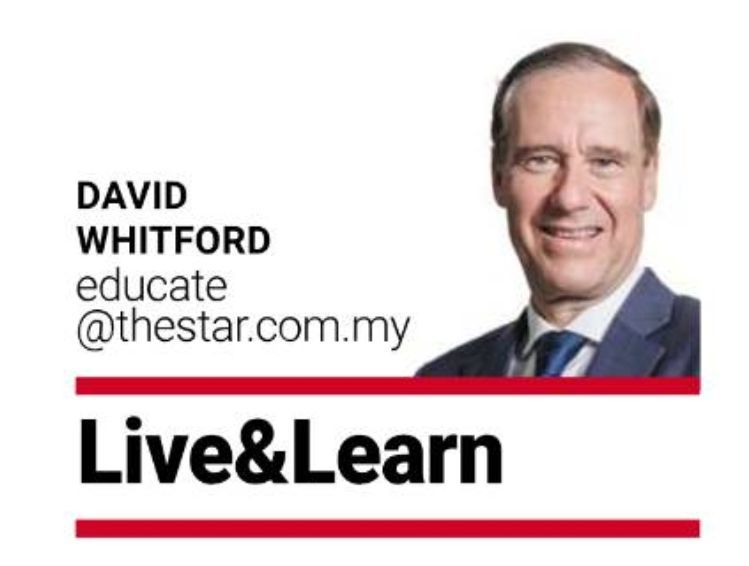








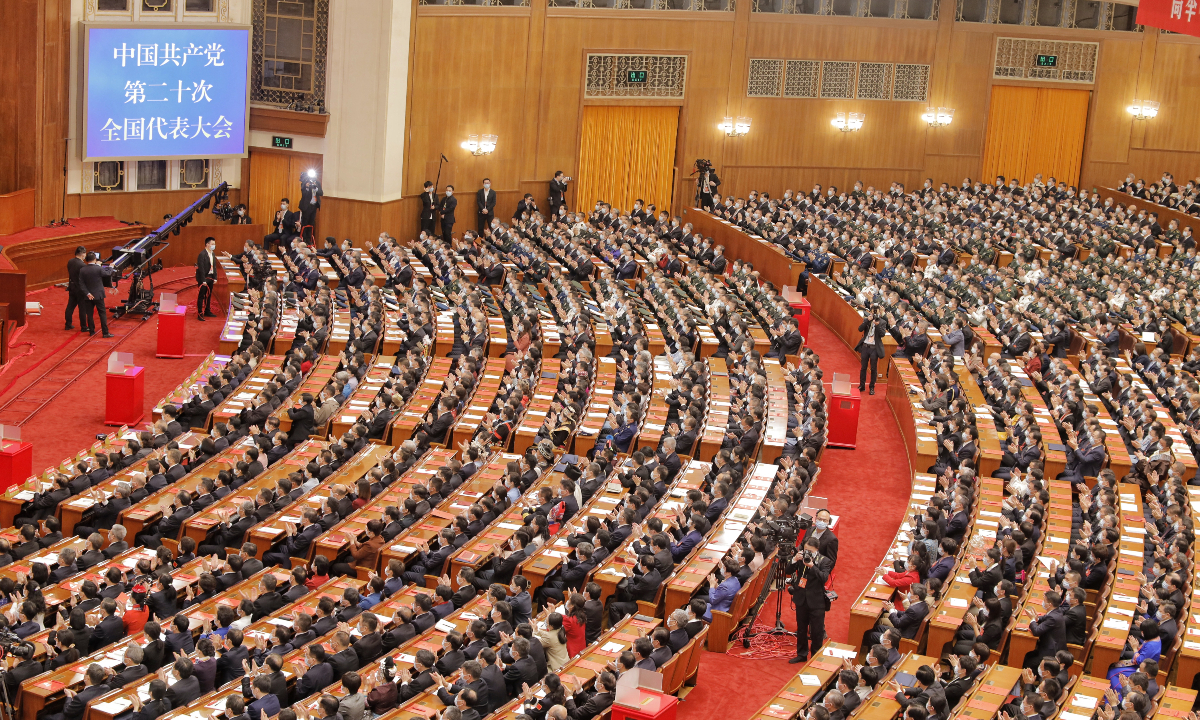 The week-long 20th National Congress of the Communist Party of China (CPC) concludes on October 22, 2022, at the Great Hall of the People in Beijing. Photo: Li Hao/GT
The week-long 20th National Congress of the Communist Party of China (CPC) concludes on October 22, 2022, at the Great Hall of the People in Beijing. Photo: Li Hao/GT
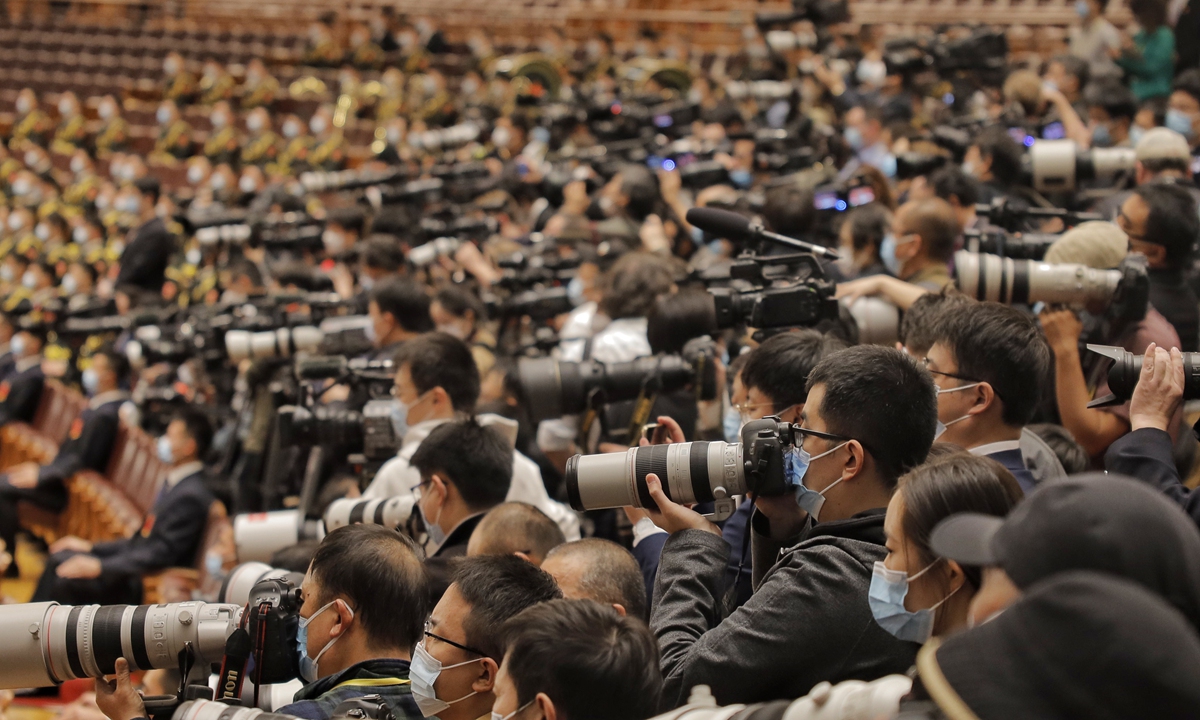 The week-long 20th National Congress of the Communist Party of China (CPC) concludes on October 22, 2022, at the Great Hall of the People in Beijing. Photo: Li Hao/GT
The week-long 20th National Congress of the Communist Party of China (CPC) concludes on October 22, 2022, at the Great Hall of the People in Beijing. Photo: Li Hao/GT